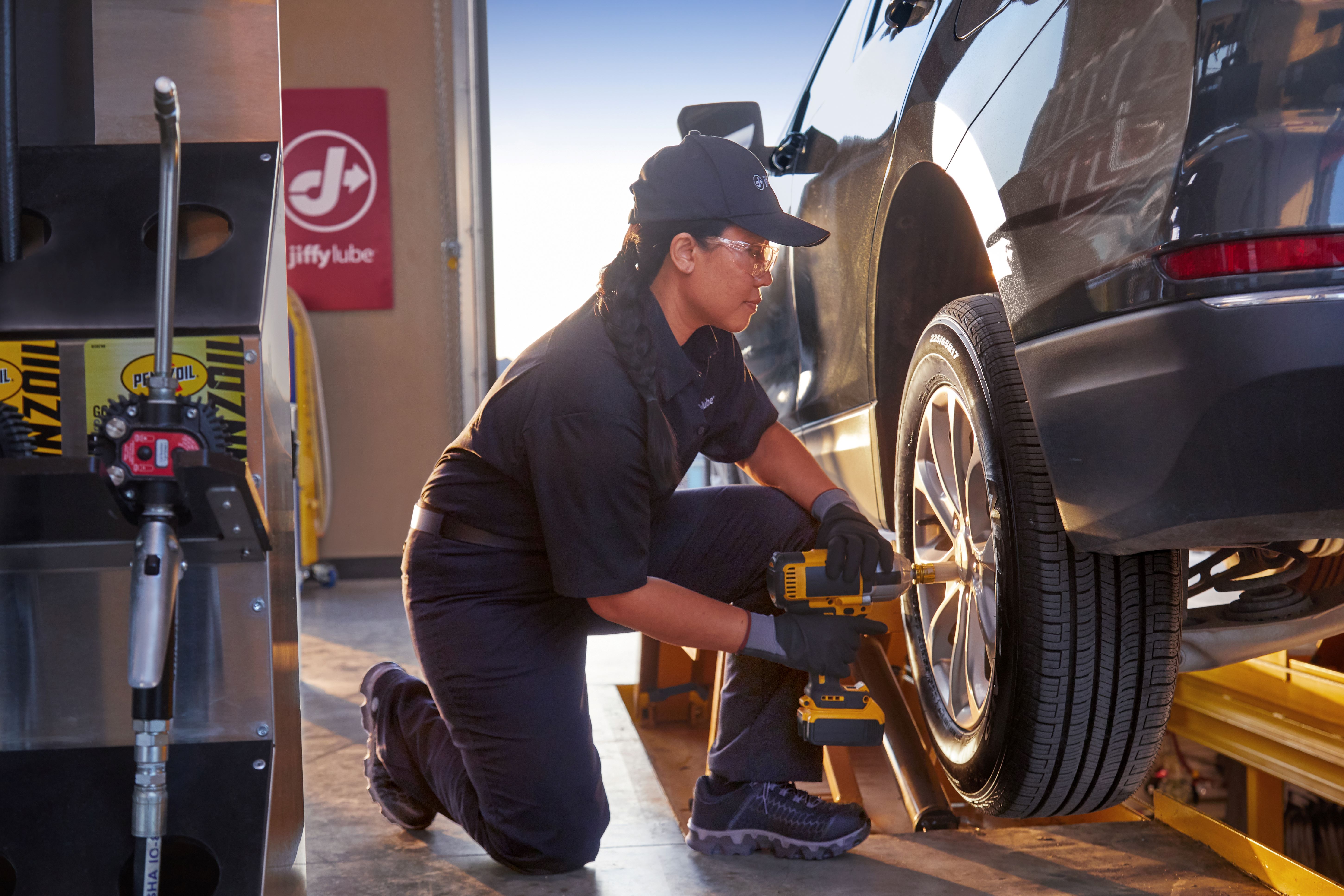Find the Best Tires Morris IL: Substantial Selection Offered
Wiki Article
Tire Solution: Recognizing Tire Stress Tracking Equipments
Comprehending Tire Pressure Tracking Systems (TPMS) is a crucial element of keeping ideal automobile efficiency and security on the roadway. With innovations in vehicle technology, TPMS has actually come to be a typical attribute in contemporary lorries, giving real-time information on tire stress levels.
Relevance of TPMS
The importance of Tire Stress Monitoring Systems (TPMS) exists in their capacity to enhance vehicle safety and performance through real-time surveillance of tire stress levels. Keeping the correct tire pressure is vital for making sure optimum handling, braking, and general safety of a lorry. TPMS supplies drivers with prompt responses on any underinflated or overinflated tires, enabling for prompt adjustments to be made.
Parts of TPMS
Consisting of various important aspects, a Tire Stress Surveillance System (TPMS) functions as a sophisticated security attribute in modern vehicles. The main parts of a TPMS consist of sensors, a control module, and a warning sign. Sensors are usually situated in the tire shutoff stem or attached to the wheel setting up, where they gauge tire pressure and transmit data to the control module. If it identifies significantly low pressure in any of the tires, the control module procedures this information and activates a warning. The warning indication, usually a sign on the dashboard, notifies the chauffeur to examine the afflicted tire or tires. Some progressed TPMS versions likewise present the actual tire stress readings for each and every tire, offering motorists with real-time details to guarantee ideal tire efficiency and safety and security. By keeping track of tire pressure continually, TPMS helps protect against crashes, reduces tire wear, and boosts gas effectiveness, making it a vital part for vehicle security and performance.
Types of TPMS

On the other hand, indirect TPMS depends on the automobile's wheel rate sensors to keep an eye on tire pressure. This system spots underinflation by comparing the rotational rates of the wheels. Indirect TPMS is much less costly than straight TPMS, as it utilizes existing sensors within the lorry.
While straight TPMS provides much more accurate readings, indirect TPMS is simpler in layout and generally requires much less upkeep. Both systems have their restrictions and advantages, and the option in between them commonly depends on aspects such as expense, vehicle make, and individual preference. Recognizing the differences in between these two kinds of TPMS can help car owners tire shop morris make notified choices concerning tire maintenance and security.
TPMS Upkeep Tips
Conduct regular checks on the tire pressure degrees and compare them with the TPMS readings to ensure they are regular. Throughout tire turning or substitute, make certain that the TPMS components are taken care of meticulously to prevent any prospective damage. If the TPMS cautioning light brightens on the dashboard, deal with the issue quickly by examining the tire stress and the overall system for any faults.Advantages of Correct Tire Stress
Maintaining appropriate tire stress, as highlighted in TPMS Upkeep Tips, is vital for gaining the numerous benefits connected with optimum tire pressure degrees. In addition, proper tire stress makes sure also tire wear, prolonging the life expectancy of the tires and promoting safer driving problems. In final thought, the benefits of appropriate tire stress go past simply tire longevity; they encompass boosted fuel performance, enhanced security, far better lorry performance, and general driving convenience.Conclusion
To conclude, understanding tire stress monitoring systems (TPMS) is important for keeping optimum tire pressure and ensuring lorry security. By acknowledging the value of TPMS, recognizing with its elements, knowing the various kinds available, sticking to proper upkeep pointers, and understanding the benefits of keeping appropriate tire pressure, drivers can improve their driving experience and extend the life expectancy of their tires. Correct tire stress is key to reliable and safe automobile operation.
Report this wiki page